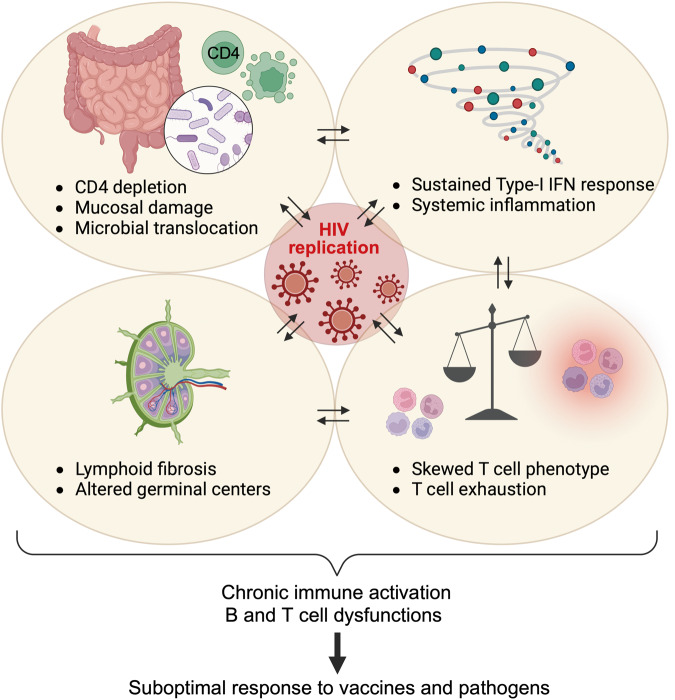Fig. 1.
HIV-associated immune dysregulation. In the early stages of HIV infection, a rapid burst of viral replication leads to rapid depletion of mucosal CD4+ T cells. Slower and progressive depletion of CD4+ T cells in peripheral tissues and blood ensues. HIV has a major impact on gut-associated lymphoid tissue and disrupts intestinal epithelial integrity, resulting in microbial translocation and onset of chronic immune activation and inflammation. This persistent immune activation further contributes to progressive depletion of CD4+ T cells, leading to alterations in T-cell phenotype and promotion of T-cell exhaustion. HIV infection also damages the fibroblastic reticular cell network within lymphoid tissues (LTs), affecting LT architecture and subsequently impacting germinal center reactions. The cumulative effect of HIV on the immune system compromises the capacity of the host to effectively coordinate immune responses against other pathogens or respond optimally to vaccines

